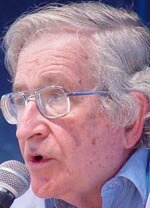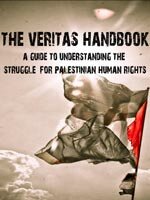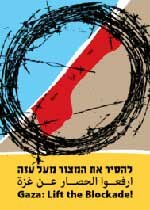Both the City of David Archaeological Park and the proposed King’s Garden project, like all the Israeli settler’s neighbourhoods in annexed East Jerusalem and the West Bank, are illegal under international law and numerous UN Resolutions. Settlements constructed beyond the international border established in 1967 violate Article 49 of the Fourth Geneva Convention.
Int’l
News that Israel and Hamas had reached agreement on a prisoner exchange instantaneously displaced the PLO bid for full UN membership from the headlines in mid-October. Arguably, Hamas and Israel had a common interest in this regard. More importantly, the Palestinian Islamists, no longer relegated to the margins of the Palestinian UN initiative by the rival leadership in Ramallah, can now resume reconciliation talks from a position of relative equality.
Netanyahu’s UN speech includes a strange statement: “The settlements are a result of the conflict”. The blurring of cause and effect is a constant feature of dominant Israeli rhetoric… And when he says, correctly, that the conflict began before a single settlement was established in the West Bank, he implicitly refers to the fact that, all along, the conflict’ core was the clash between a settler movement (Zionism) and the original inhabitants.
For the Israeli leadership, the ‘peace process’ … is a perpetual ratchet mechanism for buying time, while colonisation of Palestinian lands is extended and expanded.
While hundreds of Palestinian prisoners and Gilad Shalit return home, hundreds others go into exile, and thousands remain jailed in Israel.
Extensive evidence indicating Ms Livni’s individual criminal responsibility was presented to the DPP, and an effective dialogue was established with senior crown prosecutors that enabled relevant, admissible additional evidence to be supplied at their request. However, following the Foreign and Commonwealth Office’s last-minute (apparently) retroactive attribution of diplomatic immunity to Ms Livni, on the basis of her visit constituting a “special mission”, the DPP issued a statement that he had been blocked from making any decision as to her arrest.
Eyes in Gaza reminds us why Israel and the US have been terrified that Palestine’s success at the UN would mean accountability for Israel. It shows why 80 percent of the Arab world considers Israel the world’s most dangerous country, and why even certain policy-makers in high US places are beginning to mutter about Israel’s being a liability to the US in America’s current economic crisis.
Everyday, throughout the sections of the West Bank exclusively under Israel’s control (Area C), rain water harvesting cisterns face administrative demolition orders from the Israeli Civil Administration due to the lack of building permits. Cisterns are vital to the livelihoods of marginalized Palestinian rural and herder communities in the West Bank who rely on them to provide water for livestock, crops and sometimes for domestic water usage in the absence of an adequate network connection. Since 2009, a total of 44 cisterns and rainwater collection structures in Area C have been demolished, twenty of them between January and July of 2011.
[Netanyahu's] propaganda was sweet as honey dripping from his lips. It improves from speech to speech. But the prime minister promised that this time he would feed us the truth, not another campaign speech. A test of this promise seems apposite.
Amid the enthusiastic applause in New York and the celebrations in Ramallah, it was easy to believe — if only a for minute — that, after decades of obstruction by Israel and the United States, a Palestinian state might finally be pulled out of the United Nations hat. Will the world’s conscience be midwife to a new era ending Israel’s occupation of the Palestinians? It seems not.
In Qusra, deep among the terraced hills of the West Bank, fear is on the rise. “The settlers are provoking us continuously,” said Hani Abu Reidi, head of the village council. “They uproot olive trees, kill our sheep, burn our mosques and curse our prophet. They want to drag us into the sphere of violence. We do not want to go there.”
It goes without saying that Palestinians and Arabs are outraged by the idea that the United States is threatening to block recognition of a Palestinian state at the United Nations. What is less obvious, perhaps, is that some of the most vociferous critics of the Palestinian bid for upgraded U.N. recognition are Palestinians themselves. How could it be that advocates of Palestinian rights could be suspicious of, if not altogether opposed to, the U.N. gambit? Isn’t the creation of an internationally recognized independent state the goal shared by all Palestinians? Not exactly. The Palestinian cause concerns more than merely statehood.
Mouin Rabbani: I think it’s perfectly possible to go to the UN to seek the internationalization of the question of Palestine and do it in a way that not only strengthens your claims and preserves your rights, but increases the likelihood that you’re actually going to get somewhere.
Israelis and Palestinians express skepticism of Palestinian President Mahmoud Abbas’ UN move, while protests are taking place throughout the West Bank, facing Israel’s technology solution to anti-Occupation resistance: tear gas and a crowd dispersal weapon called “The Scream” which produces a high-pitch sound, disorienting and temporarily deafening the demonstrators.
[The Palestinian] argument is straightforward: If the idea behind a two-state solution is dividing land among the two peoples, how can Israel unilaterally continue to settle the contested land while carrying out negotiations? Israeli unilateralism, in other words, has driven the Palestinians to choose the unilateral path. The only difference is that the latter’s unilateralism is aimed at advancing a peace agreement, while the former’s is aimed at destroying it.
Here is colonialism in all its glory. After all, the United States agrees that there should be a Palestinian state, it even twisted the arm of Prime Minister Benjamin Netanyahu a little bit, cautiously so it wouldn’t hurt, so that he would blurt out the necessary formula “two states for two peoples.” … After all, Arafat already recognized it. Palestine fulfilled all the threshold conditions. And still, this state has only one chance of being born the American way. Through negotiations that will lead to a consensual agreement and a handshake. And if Israel’s hand is missing, never mind, the Palestinians will wait until it grows.
Prime Minister Benjamin Netanyahu has promised that in his speech at the UN on Friday, he will “tell the truth”. This is no trivial matter when it involves a politician who invented an encounter with British soldiers that happened before he was born… The following lines are an attempt to formulate Netanyahu’s truth ahead of one more speech of a lifetime.
A majority of Palestinians support the bid for Palestine’s membership of the UN, but expect a negative backlash, according to the results of a survey released Sunday and carried out in the West Bank, East Jerusalem and Gaza Strip from July 13 – 17.
Foreign Minister Jonas Gahr Store believes negotiations can ‘solve’ matters between Israel and the Palestinians, but that the Palestinians have a ‘right to go to the UN’.
Herein lie the most painful ironies of the PA’s 17-year existence, oft-stated, but still poorly understood in the West: As a non-sovereign entity, it must beseech its overlords for the trappings of autonomy. As the constable of its appointed domains, the PA must crack the heads of the Palestinians it claims to represent if they transgress the boundaries of official discourse. As a creature of the Oslo accords, it cannot transcend the terms of these agreements between an occupying power and an occupied people. No one can doubt who the arbiters of the agreements are: When Palestinians narrowly elected Hamas to head the PA in 2006, Israel and the US imposed a tight physical and diplomatic siege upon the Hamas-affiliated officers and their territorial seat in the Gaza Strip.
Reform began after arrest warrant issued in 2009 against opposition leader Tzipi Livni; British Ambassador says change law ‘can no longer be abused for political reasons.’
IOA Editor: The change itself is an abuse of the law for political reason.
The truth is that the Palestinians have just three options: to surrender unconditionally and go on living under Israeli occupation; to launch a third intifada; or to mobilize the world on their behalf. They picked the third option, the lesser of all evils even from Israel’s perspective. What could Israel say about this – that it’s a unilateral step? But it didn’t agree to stop construction in the settlements, the mother of all unilateral steps. What did the Palestinians have left? The international arena. And if that won’t save them, then another popular uprising in the territories.
IOA Editor: Levy is the good, sensible and moral Israeli, addressing an Israeli audience. However, to state that for the Palestinians to mobilize the world on their behalf is “the lesser of all evils even from Israel’s perspective” is problematic, at best.
History shows that all Israeli governments — “Left” or “Right” alike — prefer violent Palestinian resistance to the Occupation over any non-violent protest because it provides Israel the best possible excuse to do what it knows and does best: attack and destroy Palestinian population centers, national infrastructure, agricultural and industrial employment centers — bring about as much destruction so as to crush Palestinian society, push back reconciliation and continue the land colonization process in order to make a Palestinian state physically and geographically impossible.
The experience of Gaza and the Second Intifada provide ample evidence to this assessment. One can only hope that the Third Intifada will be sophisticated enough, and very obviously non-violent, in order not to provide Israel with easy excuses.
This is also why Israel is at such a loss now on how to deal with the legitimate Palestinian demand for statehood, scrambling to deal with global pressure on the UN frontier: if it could only launch a missile-equipped drone to solve it all…
Noam Chomsky: “If the Palestinians do bring the issue to the Security Council and the US vetoes it, it will be just another indication of the real unwillingness to permit a settlement of this issue in terms of what has been for a long time an overwhelming international consensus.”
[T]he Palmer Report seems to fault seriously the manner by which the Israeli enforced the blockade, but unfortunately upheld the underlying legality of both the blockade and the right of enforcement, and that is the rub.
Ban Ki-moon: “The two state vision where Israel and Palestinians can live… side by side in peace and security — that is a still a valid vision and I fully support it… And I support also the statehood of Palestinians; an independent, sovereign state of Palestine. It has been long overdue…”
Hamas needs a blockade to regulate from within so that the subjects of “independent Gaza” will be exposed as little as possible to different realities and will not question its policies. Hamas needs the blockade and needs Gaza to be cut off from the rest of Palestinian society to ensure the continuation of its regime.
Human rights groups and international media have been reporting for years that the IDF uses unmanned drones armed with missiles in order to attack targets in Gaza. This is the first instance of it being published in WikiLeaks, quoting the words of the IDF Advocate-General.
Haneen Zoabi: “Just as Israelis are beginning to seriously consider a new social order, they must also consider a new diplomatic order in which Israel will pay a heavy price for its policy of oppression, occupation, and belligerence.”
The Palestinians are walking into a trap of their own making. With the so-called “peace process” going nowhere, and with the number of Israeli settlements on the rise, the UN vote is an act of desperation, not strength, on the part of the Palestinian leadership.
Sygmunt Bauman: “Israel does not see the missiles falling on communities along the border as a bad thing. On the contrary, they would be worried and even alarmed were it not for this fire.”
“Under normal trade and transit conditions … Israel would no longer enjoy overwhelming dominance as the leading OPT trading partner,” the UNCTAD report says.
The rules of the game in the new Middle East changed… From now on, the people are speaking; they will not stand for violent or colonialist behavior toward Arabs, and their leaders will have to take this into consideration. The occupation, and Israel’s exaggerated shows of force in response to terror attacks, are now being put to the test of the peoples, not just their rulers.
Israel Aerospace Industries unveiled over the weekend its latest development in the field of secret unmanned aerial vehicles – a miniature aircraft weighing four kilograms, known as GHOST to foreign customers.
IOA Editor: Israel’s approach to dealing with Palestinian civil society has often been via a ‘technology fix:’ Spot and Shoot, robotic fighting machines, Shock Vehicle and, last but not least, the Caterpillar bulldozer.
This most recent addition to Israel’s arsenal will enable occupation forces to observe urban resistance in narrow alleys, ‘around the corner,’ via a device remotely controlled at the platoon level.
As with the other ‘fixes,’ GHOST could potentially lessen IDF casualties thus making the cost of occupation more acceptable to Israeli society, while enabling the IAI to sell yet another product, tested on the backs of Palestinians, to shady governments around the world.
For the sake of Abir Aramin and all Palestinians who are maimed, killed, or whose homes, farms, and infrastructure are wantonly destroyed in the course of Israel’s brutal military occupation, the US must end taxpayer-funded weapons transfers to Israel and hold it accountable, just like every other country, for its violations of the law. To do anything less would be to unfairly hold Israel to a different standard.
This time, too, Israel will accuse the Arabs of unilateral steps, ignore the United Nations, expand settlements in the West Bank, and build more neighborhoods for Jews in East Jerusalem.
UN coordinator for the ME peace process: “If confirmed, this provocative action undermines ongoing efforts by the international community to bring the parties back to negotiations.”





































